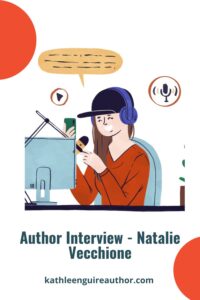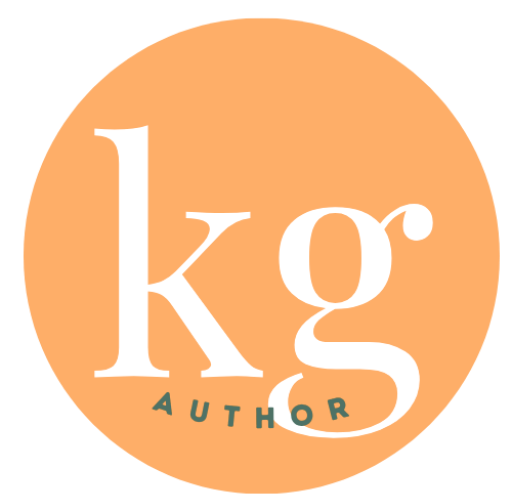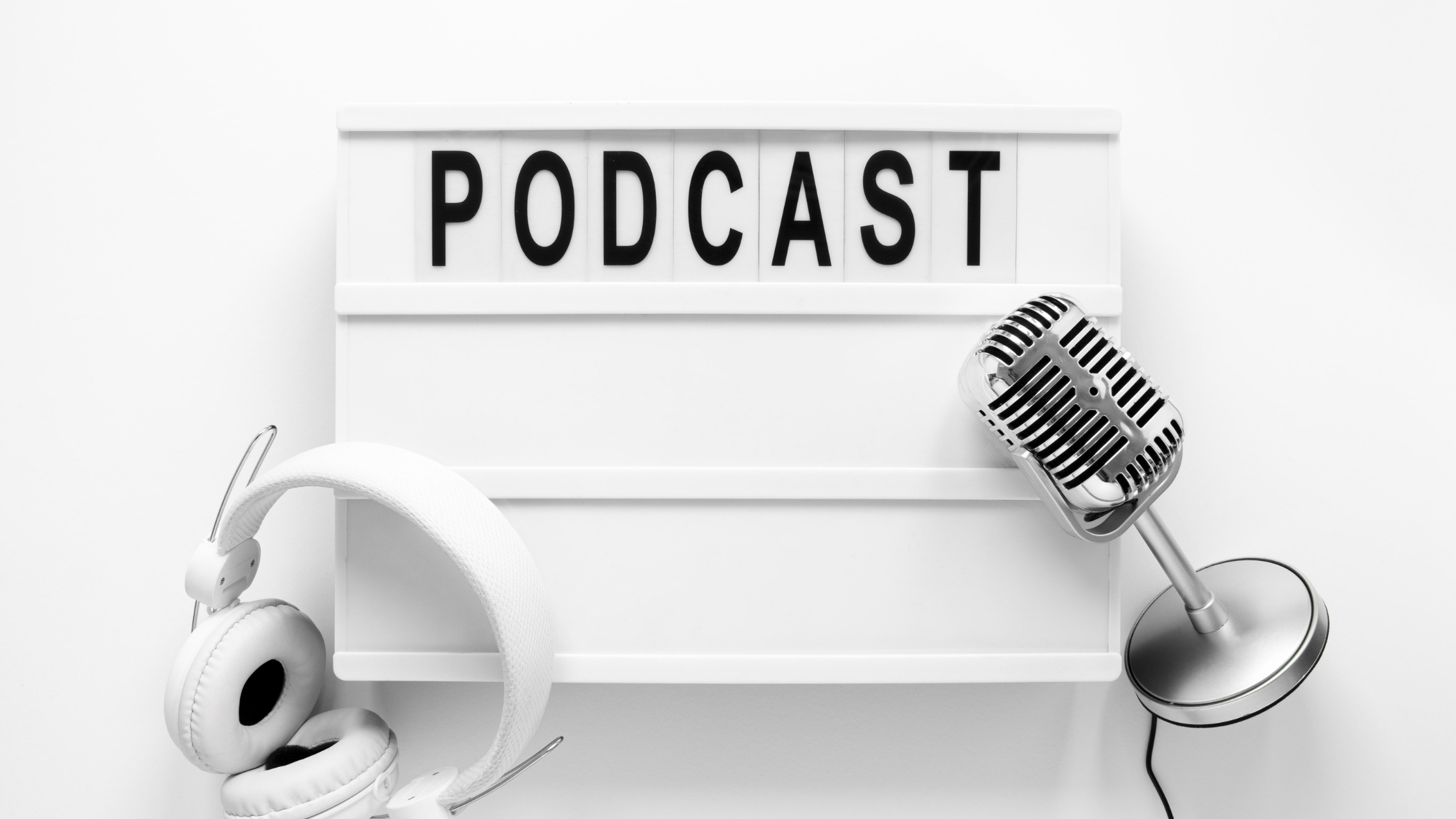Author Interview – Natalie Vecchione
Author Introduction
Natalie Vecchione is a FASD parent advocate, podcaster, author…..and most importantly a wife and homeschool mom of two. Natalie and her husband, John, built their family through domestic adoption. Their son, who is 19, lives with a FASD (Fetal Alcohol Spectrum Disorder). He graduated from homeschool as a carpentry apprentice, he works part-time at a home improvement store & he lives interdependently in his own apartment with 2 roommates. Their daughter is 6 1/2 and they have a much different adoption journey with her, as they are very close with their daughter’s birth family. Natalie turned her family’s unique challenges and journey with FASD from career reinventing into a calling when she and her husband began FASD Hope in 2020.
Natalie has been an FASD podcaster for almost 2 years. In October 2020, Natalie & John cofounded “FASD Hope” FASD Hope is a podcast, website, and a place for awareness, information, and inspiration for those people whose lives have been touched by FASD. The FASD Hope podcast series is through the lens of parent advocates with over 19 years of lived experience. FASD Hope Podcast is available anywhere you find your podcasts.
Natalie’s new book – Blazing New Homeschool Trails: Educating and Launching Teens with Developmental Disabilities by Natalie Vecchione and Cindy LaJoy is now on Amazon.
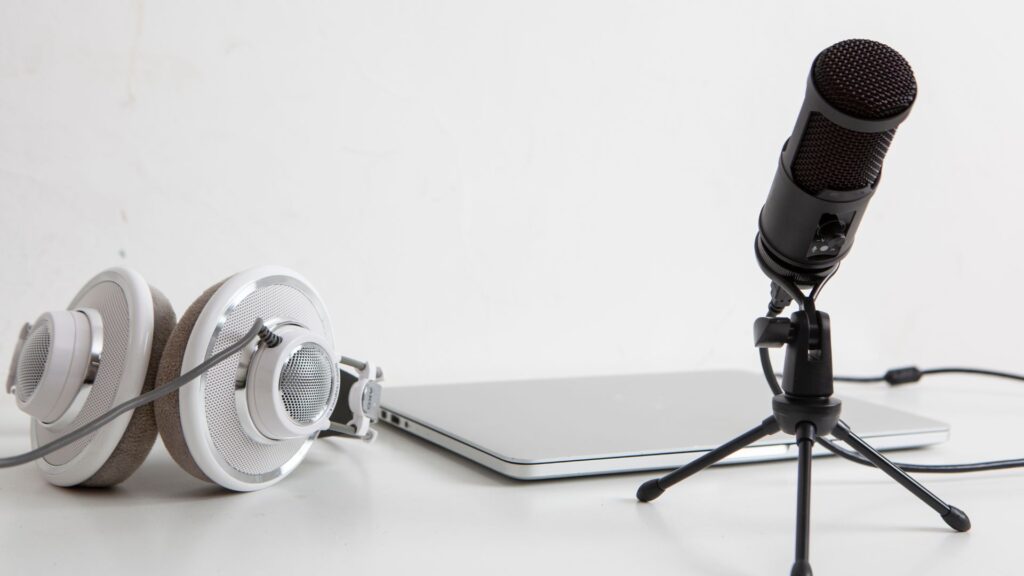
Kathleen: Welcome to Helping Writers Craft Authentic Stories with courage. This week we have a special guest, Natalie Vecchione. She is an author. She’s the co-author of a book, and I’m going to let her talk about that in a minute. But let me give you a short introduction. Natalie Beckyone is a FASD parent advocate, podcaster author, and most importantly, a wife and homeschool mom of two. Natalie and her husband John built their family through domestic adoption. Their son, who is 19, lives with an FASD fetal alcohol spectrum disorder. He graduated from home school as a carpentry apprentice. He works part-time at a home improvement store. I’ll let her talk a little bit more about that in a few minutes. But he lives interdependently, which I’m familiar with because my son is like that too, in his own apartment with two roommates. Their daughter is six and a half and they have a much different adoption journey with her. They are very close with their daughter’s birth family. Natalie turned her family’s unique challenges and journey with FASD from a career reinventing it into a calling that she and her husband began FASD hope in 2020. And she has a podcast which I’ll let her talk a little bit about.
But before we get started, I’m just going to let you do I mean, that’s kind of the bio introduction, but tell us a little bit about yourself that’s not in that bio or add to that bio a few things and some of these you’ll learn if you read your book.
Natalie: My co-author and dear friend Cindy La Joy says this also I was a desperation homeschooler. We homeschooled because we had a meeting in 2014 with our son’s educators, with the team, the educational team, and it was on a Friday and they made a recommendation. So sharing the story, they made recommendation, and my husband and I just were like, no, that can’t happen. And literally in that meeting, we decided, okay, we’re going to start homeschooling on Monday. And we did. So I was a desperation homeschooler. But now with our daughter’s journey. I love it. It’s a totally different journey. My kids are 13 years apart. Our son will be 20 in July, and our daughter will be seven in June. So it’s really like homeschooling two only children. Our trajectory looks much different than typical homeschoolers. And also this book talking FASD Hope. I love it. It’s my calling. I think it’s what the Lord led my husband to create to let other parents know that they’re not alone and other people in the FASD community. This book was inside of me, and if you had told me years ago you’re going to write a book, I would have thought of a million other topics in my life that I would have shared. I never thought that My Most Broken Journey, which is our home school journey with our son and I share about our son’s hospitalization and just everything we went through to get his diagnosis. I never thought that the most broken part of my journey as a mom would become my most powerful message to readers, to the community, about how we, out of desperation, created this new path of homeschooling to educate our son and to, I like to say, soft launch him into the world. Right. Because we know with young adults that have illness with disabilities, that launch is very slow and it takes a long time and there’s a lot of support. Honestly, I think I never thought that My Most Brokenness would become my most powerful message, and I think that’s really important for authors and potential authors.
There’s a wonderful quote by I believe it’s by Morgan Harper Nichols. It’s something about that a page in your survival guide will become somebody else a page in your journey will become a page in somebody else’s survival guide. I’m paraphrasing. But basically, taking a page from my journey that was very hard can be somebody else’s lifeline. And that’s what Cindy and I both did. And Cindy would agree with me, too. She never, ever thought she’d be writing about her broken, crazy home school journey with her five kids, three of whom have an FASD diagnosis like our son. So, yeah, honestly, I think being vulnerable and authentic and then grateful in our book, we share a lot of gratitude that we’re able to write. We were able to write this, and we learned something. I think, so many times parents of kids who are in hard places, no matter what the cause or the circumstance, we often think that we have to fix this child. We have to fix this child, we have to fix this child. And honestly. For so many years and I shared this in the book. I prayed for the Lord to fix our son. And I’m using air quotes to fix yeah. The Lord had to fix me. And this journey broke me. But then he filled me with his light. And it became my calling to say. Okay. I know there are scores of other hundreds of thousands. If not millions. Of families out there who are going through the same thing. And they need to hear what we went through.
So I really needed permission from our son to share our journey, because he does not want another young person to have to wait 15 years for an appropriate diagnosis.
Kathleen: Wow.
Natalie: And he also does not want other kids to be either homeschooled or schooled and forced to be on a trajectory that’s not them. And before we start recording, you and I talked about that there are other options, and that’s what this book is about. It’s about our journey to share our experiences. We educate people about FASD, too, because that’s really important, especially since there is national legislation pending about FASD.
And then we also just provide our feedback and what we’ve learned. And another thing I love about this book is you’re getting the long answer. I’m sorry I’m jumping down this rabbit hole, but our book is only 100 pages long. I have so many friends who are authors, and their nickname is the slim snack. It’s a guidebook. It’s a quick read. And for those parents who are in those trenches, that’s what they need. I know. Exactly. You can’t read a 400-page book when you’re parenting in the trenches.
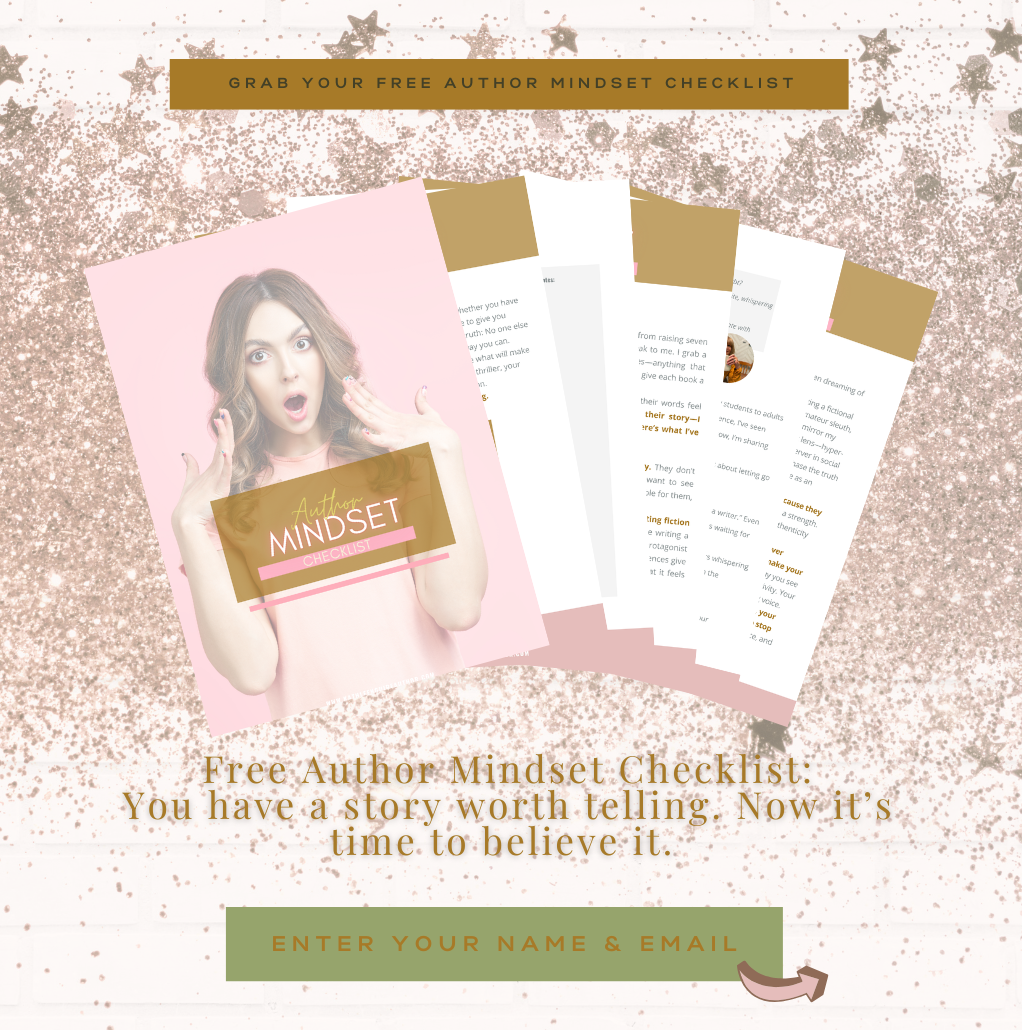
Struggling with self-doubt as a writer? You’re not alone.
Every writer faces that little voice whispering, “Who am I to write this?” But here’s the truth—mindset is the biggest difference between writers who finish their books and those who don’t. 🚫 You don’t need more time.
🚫 You don’t need permission. ✅ You need the right mindset.
Kathleen: Exactly. Inspiring and helpful. Well, and Natalie didn’t mention this. Blazing New Homeschool Trails: Educating and Launching Teens With Developmental Disabilities, is the name of the book. And I was telling her we should have been recording when we were just chatting. I was telling her about sharing this book with a friend of mine whose son is not adopted and does not have fetal alcohol syndrome disorder but has a Capital Letter Syndrome. And that son of hers is now going to welding school while finishing homeschooling at the same time. So it’s not just a powerful tool to share your journey, but it’s also a motivator and a comforter and an empathetic listener kind of voice, even while you’re reading. Like, oh, my goodness, that’s for me. She’s writing that for me. For readers to say there are other options, there are other ways of getting an education. And that’s why I think this book is so important, because growing up, we have this, at least in my family, it was like, you’re going to go to college. Everyone’s going to go to college. Well, college is not for everyone and never has been for everyone. There are so many different careers and ways of making a living other than going to college. And we need to make sure that what our kids are going for is going to fit their personality, their skills, and their abilities. Like my oldest son who climbs cell towers for a living. And so you can thank him that you have cell service. He is so mechanically inclined. Like, he can figure out anything. I remember him at a very young age showing me before I could even speak English- because he’s adopted from Poland – how to get my vacuum cleaner cord back in the vacuum cleaner, things like that. So we need to consider those things. And I think it’s really interesting what you were saying, that you had to share everything that you went through, all the horrible things that you went through. I think that’s what makes a powerful book. If you have a transformation, if you have something that you’ve gone through and you’ve learned from and you put that down on paper, yeah, it’s like spilling your guts out and being on an operating table with no anesthesia. But that’s what makes a powerful book. And that’s what makes me want to pick up a book knowing that the person who wrote it or the people who wrote it have gone through what I’m going through. So let me ask you, when did you first desire to write a book?
Natalie: Well, I knew that I wanted to write a book, I think, growing up, and I love just reading. I love writing. As my life changed, I knew that would be on hold. I dabbled with blogs, and then when our son was hospitalized, and then when we started learning about FASD, I started my transformation and changing and becoming a parent advocate and then growing and becoming a podcaster and everything. And when our son’s journey was kind of coming to a close and knowing how unique our family’s journey was, when I think God planted the seed in me to write a book. And I knew especially – not many people were doing an old-fashioned apprenticeship for homeschooling- or at least not many that I was aware of. And I’m very active in Cindy’s group Blue Collar Homeschool.
And shortly after I became a podcaster, I interviewed Cindy, and we just connected her journey, which is so similar to mine, but then it was so different. So after just kind of like you and I are talking, after I recorded her for an episode, talking about what her kids did, which was last year, their homeschool journey, they created a business that intentionally hires people with developmental disabilities. Buckaroo, Slices, and Scoops. It’s huge in their city. It’s wonderful. They were named the best pizza and ice cream shop in their city in 2020. They’re fantastic. That was their year-long thing. And they created Buckaroos because she wanted a place for her three now young adults who have FASD to work and to be safe and to know that they will always have a job there, and that’s theirs.
So when Cindy and I started talking, that’s when the seeds started blooming, and that’s when I could feel the Holy Spirit saying, okay, she’s the one you need to write your book with. And I’m glad we did, because our journeys, if you read our book, she did it very big entrepreneurial, big business, that kind of thing. And it was amazing. We did ours very small, one on one carpentry apprenticeship, kind of like they did hundreds of years ago, where you shadow somebody for a few years. And I wanted to share that because that’s an option, too. So we had two very different end results. However, it required us both to just completely think differently and out of the box for our kids and to create, really, these home school, and high school opportunities that haven’t been there.
Kathleen: Right. Honestly.
Natalie: So I interviewed her in late 2020, shortly after FASD Hope, launched, and it was just the Christmas episode of 2020. And I said, we need to write this book. And so we wrote the book, and it was beautiful because we complimented each other so much. So from December 2020, our book was independently published through Amazon. Our release date was June 3, 2021. It took us six months. We both had the story inside of us. We outlined the chapters. We outlined what we were going to do. We knew what our mission was, and it was wonderful. Another thing that I can share is that if you want to create a book, but maybe you’re apprehensive about doing it alone, finding someone who either has a similar journey or has an opposite journey but ties into your story, that really helps. I am so thankful that this book I wrote with Cindy that it’s equal we’re partners, and that we are able to reach more people because we share two very different ways of homeschooling, high school in two very different ways. So that’s another recommendation I would have. And Cindy really brought out my authenticity and my brokenness, and I brought it out in her. So now, I’ve never met her in real life, but I consider her to be one of my dearest friends because she understands our journey and her sharing her journey, her family’s journey, how they did it in her, FASD Hope helped me to do the same.
Kathleen: Well, that’s amazing. I love that suggestion. Find somebody to partner with, to write with, even if they’re the opposite of your journey, because then you’re sharing two distinct stories and two transformations. So you’re ministering to more people.
Natalie: Exactly. So you have actually reach a bigger audience, too, because I think that’s part of another thing, too, is definitely I know, I’m sure many of your guests have shared this, but you don’t write a book to make money. We were happy we broke even.
Kathleen: Right.
Natalie: You write a book to share your story and to share a message. And for us, we felt like this was God’s message of how we needed to share our journeys and our brokenness and how God used us to create new opportunities.
Kathleen: Right. I think that’s a very important point, because we write this sort of book to offer that transformation to the reader. We’re taking them on the same journey we went on and saying, here’s what happened, here’s how I overcame it, or here’s how I didn’t overcome it. Here’s how I messed up. Here’s how I didn’t mess up and saying, come along with me on this journey. And when you finish this book, you will have a transformation yourself if you apply what you’re learning in this book.
Natalie: And it’s funny, Kathleen, because in the book, we knew the story. It was easy writing it. The hardest thing was coming up with the title, but the easiest thing was our cover. And our cover. If see our book cover, it’s literally a wooden post in the middle of a country road, and there are two unpaved paths. And mine says, skilled trades and apprenticeships this way. And Cindy’s says, self employment and entrepreneurship that way. We knew that was like, the whole premise. That was the whole beauty behind our book. It’s like, here’s a place in the middle of the road. Where do you go? We’re going to point you. And these are not paved paths. These are paths that there are roots growing on them. So, you know, not many people take those paths. And then the title came to us from one of the chapters, and then we’re like, okay, yes, this is the title, which was Blazing New Homeschool Trails. But, yeah, honestly, I really think that God plants that seed. And either for me, it was Cindy. Meeting Cindy. Collaborating with Cindy and letting that grow and bloom. But for other people, it could be anything. But you know that if you want to share your story and share your authentic journey, it’s in there, right? It’ll come out when you’re ready. And another thing is, for me, this writing this book was very powerful. I cried when I wrote our chapters. It was very powerful to see on paper about our son’s hospitalization. I cried like, sobbed. And that was good for me. That was really good for me, because, again, I was able to be at a place and look back and say, wow, we’ve come a long way. We’re still not perfect. We’re still broken. I mean, goodness, Kathleen, there’s still days that I just pray.

Struggling with self-doubt as a writer? You’re not alone.
Every writer faces that little voice whispering, “Who am I to write this?” But here’s the truth—mindset is the biggest difference between writers who finish their books and those who don’t. 🚫 You don’t need more time.
🚫 You don’t need permission. ✅ You need the right mindset.
Kathleen: So would you say that another benefit of writing the book was some healing for you?
Natalie: I think Cindy would say the same thing. Okay, yes. And healing and an opportunity for reflection on how far we both have come with our respective kids. Absolutely.
Kathleen: So who is this book for? Even though we’ve talked about it? Maybe put that in a nutshell. Like, who is it for?
Natalie: Well, I guess we could start with the primary audience and then kind of the secondary. So primary audience. Our intention is for those families who have teens, even children who are thinking further ahead. Children, teens, and young adults that either have developmental disabilities, neurodiversity or, like you said, just kids that are not thinking about college as their post-home school or post-high school career. That would be our primary audience. Also, just for parents of children, again, whether you’re homeschooling or not just for parents of children with any type of disability. Right. Again, we just want this primarily to be for parents to think, okay, I can create a new future, which is pretty awesome for my kids. I can help, I can be a part of that. And then going down even further, I would say home school organizations, people who want to learn about FASD, because we do have a forward to teach about FASD, we feel like it’s very important for people to know and be aware since both of our families have been affected by it. And then again, just people who are in working with kids. So teachers, even though we share our story with homeschoolers, teachers, community members, and people who support those teens, and young adults with any type of disability, particularly developmental disabilities. But how again, you can think of that young person’s future in a different way. It doesn’t have to be in the way that we, and I’m using air quotes, traditionally think of their futures.
Kathleen: Right. I think that’s great. I think that’s amazing. And I love the idea of like, buying that for home school groups and the leadership reading it, because I noticed that they can tend to lean towards academics only, which leads… I have experience with that. And then that leaves a whole group of students behind. And not only does it leave them behind, but it also makes them feel inadequate or lacking or not enough. And that’s just not true. It’s just not true.
Natalie: Thank you, Kathleen. I would highly recommend our book for homeschool, co-ops, homeschool leaders, that kind of thing. And I’m glad you brought that up. Cindy has had this experience, too. Most of our co-op experiences with our son were very negative because, again, it was academic focus, competition, memorization, that kind of thing. The best co-op he was in had a makers club where they got together once a week and they just got things and made things they learned about. It was very hands-on, but they also learned about academic subjects. They paid a local professor to teach. He was young. It was teens at the time, younger teens about bioluminescence and things that were like, wow, yeah. I would definitely recommend co-ops and people who are teachers and co-ops leaders and co-ops so that they can say, okay, you know what? There’s a reason why this one kid doesn’t really participate, or there’s a reason why this family doesn’t come or anything. We need to expand and think about those kids. That it’s not a less than. It’s a different journey.
Kathleen: Exactly. It’s a different journey.
Natalie: I’m glad you brought that up, Kathleen. Yeah.
Kathleen: So where can people find the book?
Natalie: So you can find it on Amazon. We independently publish through Amazon. You can also visit our website, I’m at fasd.com. And Cindy’s – bluecollarhomeschool.com. Cindy also has a Facebook group that you can visit to learn more. If you’re in this time in your life when you want to learn more. Cindy’s group is fantastic. I believe she’s got 15,000 members or maybe even more than that. Yeah. So fasdhope.com people can also email me, Natalie@fasdhope.com. Amazon is basically the best way. I know that if you’re interested in just learning more about it, you can also, again, email Cindy, or I can certainly answer any questions. But, yeah, again, I like to call it a slim snack. It’s and it’s pretty reasonably priced on Amazon, and we’re very thankful that we’ve been able to do this. I can’t believe it’s been almost a year. June will be one year since we released it.
Kathleen: It’s been that long. Wow. Well, to finish up, you were talking about, if you are an aspiring author and you have that desire that listener that desire to write a book, what advice would you give them?
Natalie: Number one, and really just reflect on the why behind your book. Our why was both practical but also both vulnerable, sharing our very broken journeys. So pray and reflect on why you want to write your book. Number two, brainstorm. One of the best activities I did was just kind of like a mind mapping thing, was like, okay, here’s the book. What do I want to communicate? And from that mind map? And actually, I did one, and then Cindy and I did one together. That’s how our book grew. So just be creative in that process. If you know in your heart what you want to write about, then you can use that to help you lay out your book. But if you don’t know what you want to write about, then just think about important things in your life or something about your journey or something you’re passionate about or something you feel like the Lord has put in your heart, and let that help you. And then I think number three and this would be the most important thing, is what message do you want your legacy to be? Really? When you write a book, you’re leaving a legacy, right? We all do something that leaves a legacy. But when you’re writing a book, like hey, when you shared with me that you recommended our book to someone else, that to me, right there. I’m just like, praising God, like, wow, that’s what Cindy and I wanted to do. We wanted to help people and let them know they’re not alone and there are other options. So what mark, do you want your book to leave? What kind of legacy? What kind of message? And sometimes I’ll be 100% honest. Sometimes it’s the most broken, vulnerable, scary thing inside you that will actually be the most powerful message.
Kathleen: 100% agree. Thanks for joining us today, Natalie. And one final thing. I just want to make sure people know where to find your podcast as well.
Natalie: Thank you. So you can listen to me on FASD Hope, where anywhere you find your podcast. I’m actually going to start. I’m going to be a co-host in an upcoming second podcast. It’s completely different, so if you follow me on social media or Fasdhope.com, I’ll be sharing probably, hopefully. While this area is a little more about our new second kind of podcast, which I think it’s like my fun project. I don’t want to share much more because we’re still kind of just getting things together.
Kathleen: Okay, well, thanks for joining us and I will see you next week, listeners. Thank you. Bye.

Struggling with self-doubt as a writer? You’re not alone.
Every writer faces that little voice whispering, “Who am I to write this?” But here’s the truth—mindset is the biggest difference between writers who finish their books and those who don’t. 🚫 You don’t need more time.
🚫 You don’t need permission. ✅ You need the right mindset.
Pin This:
